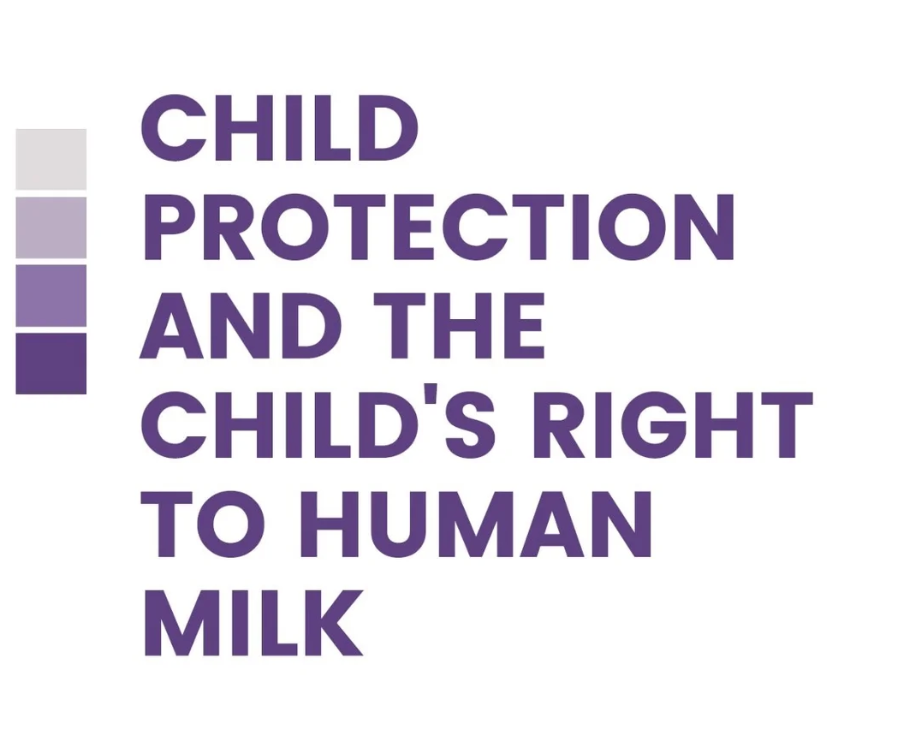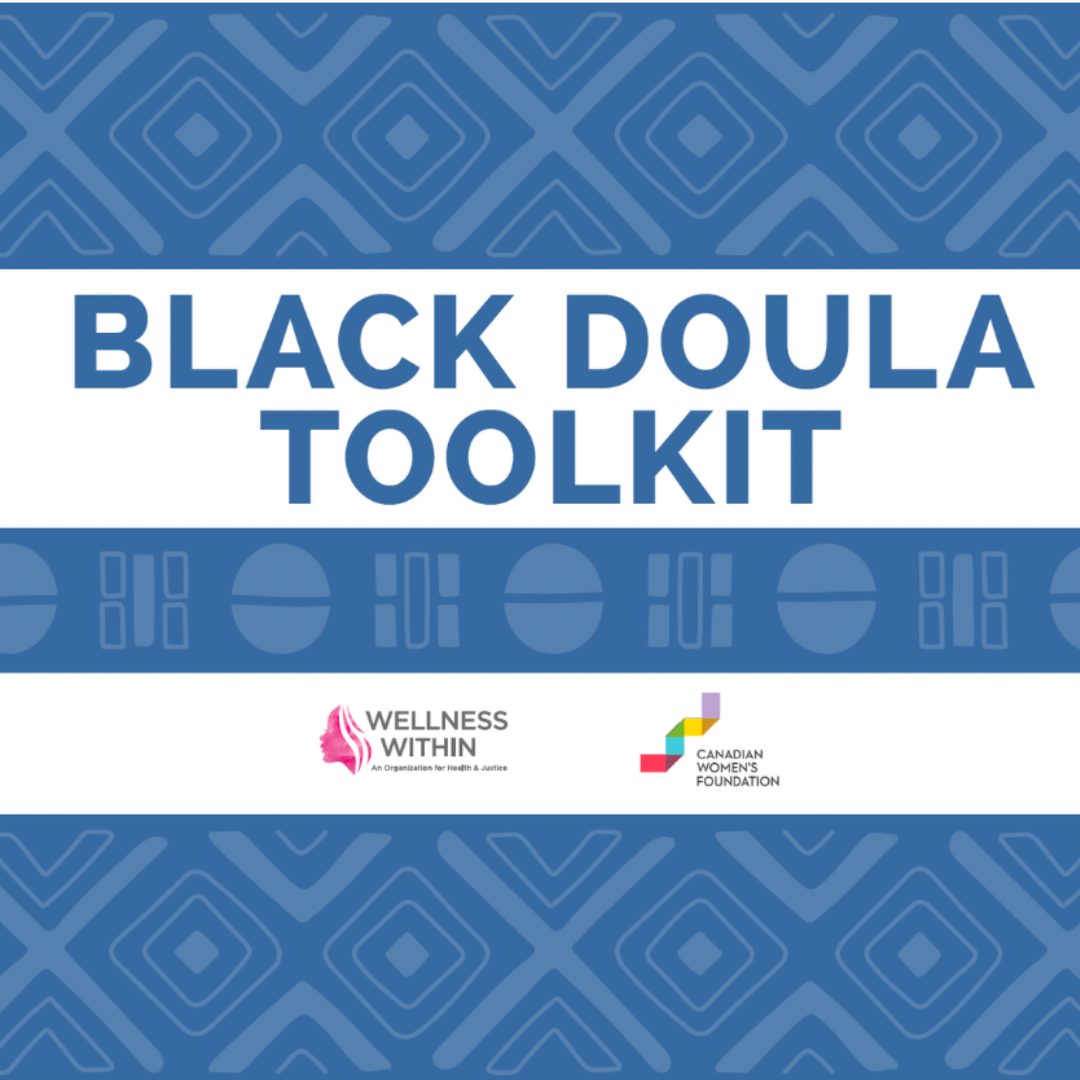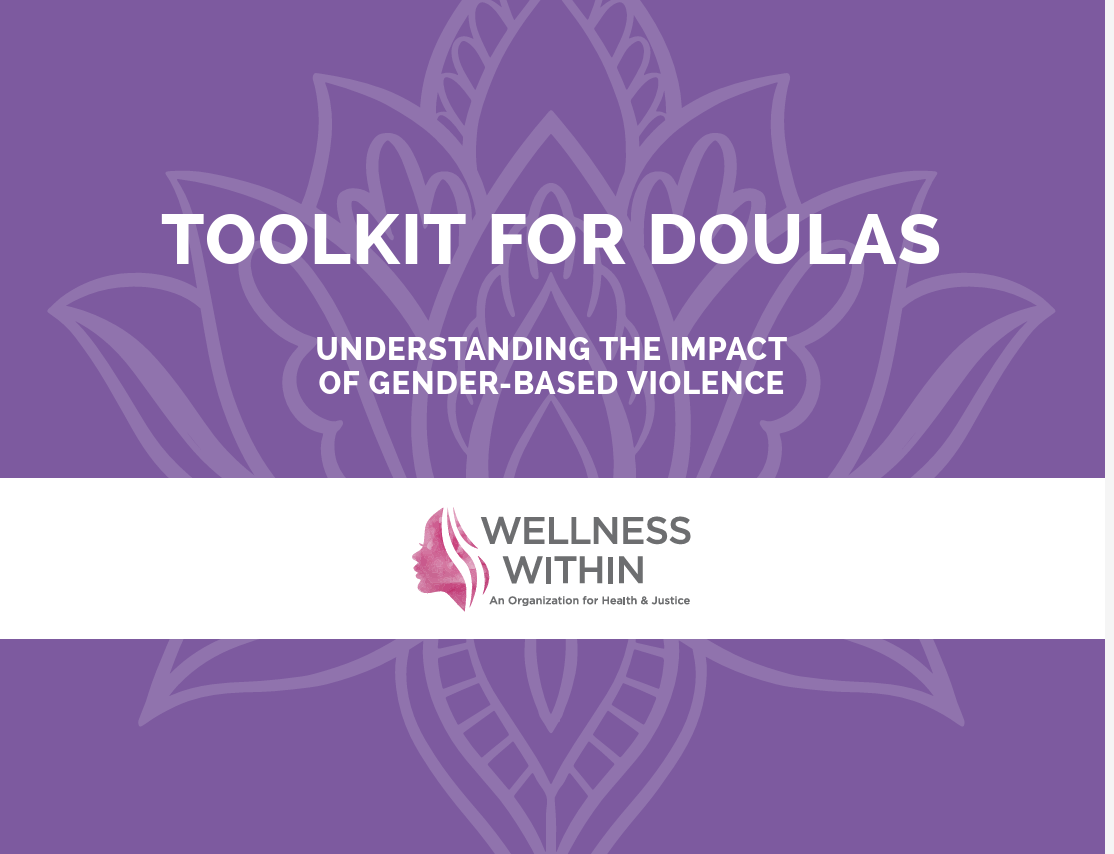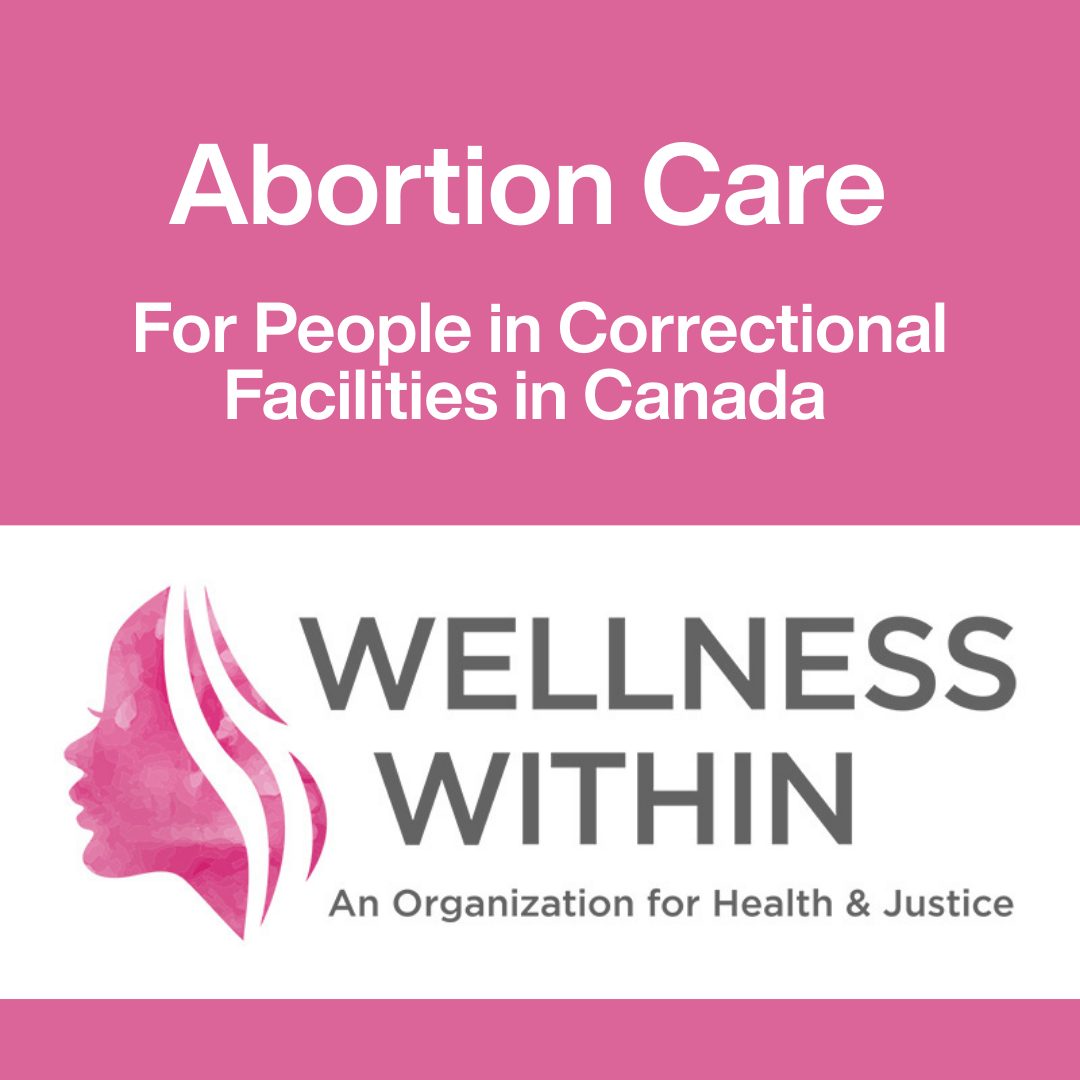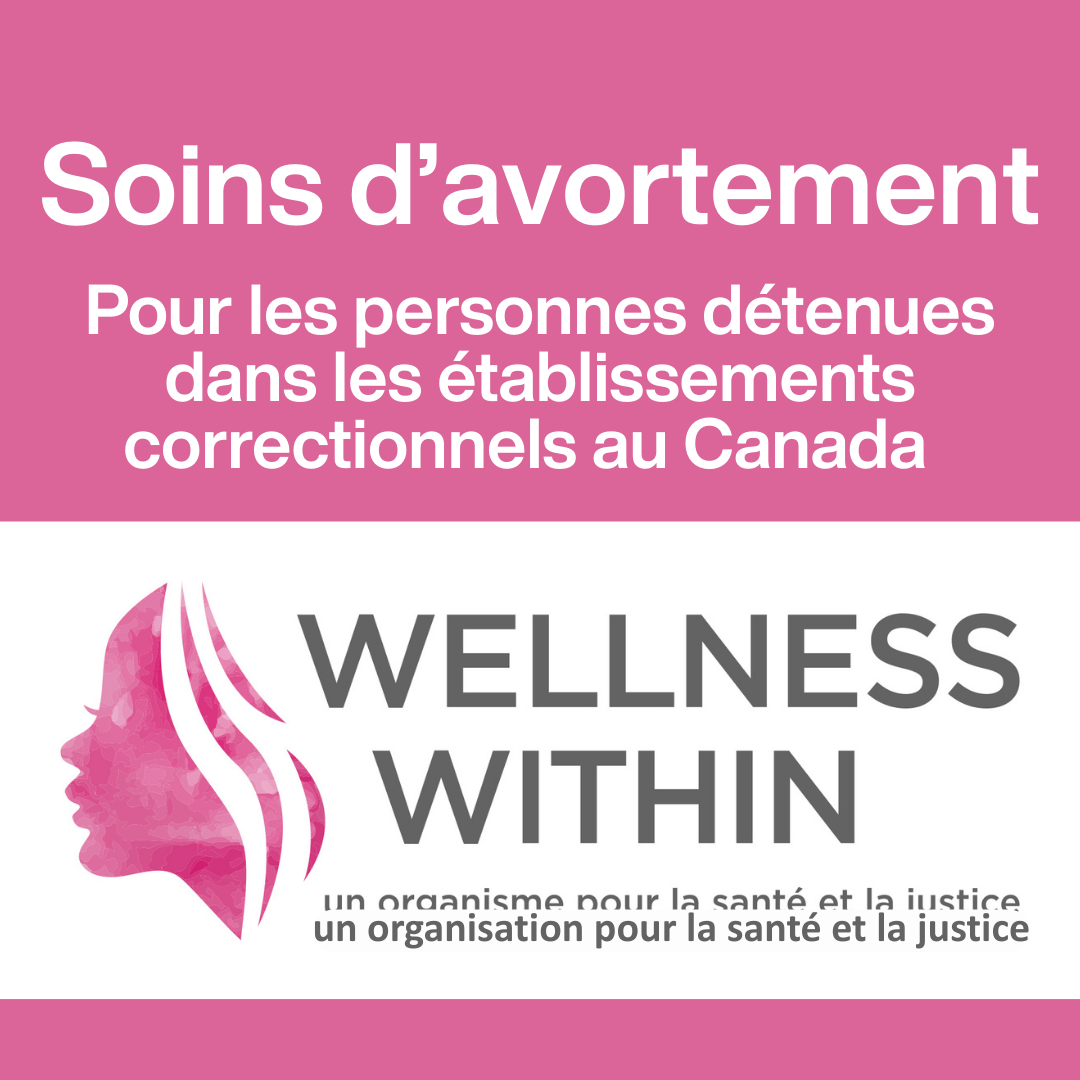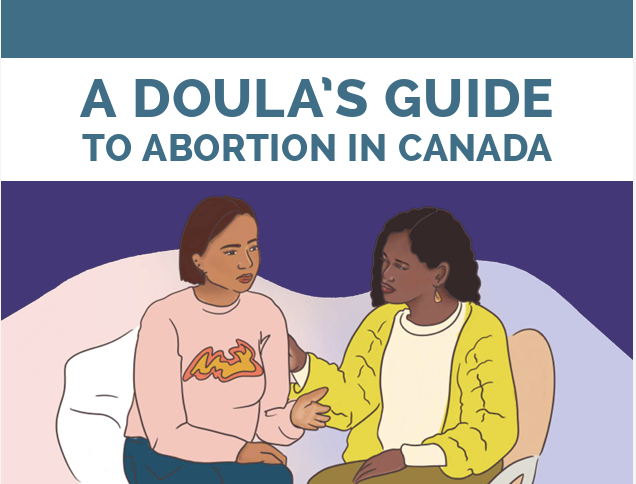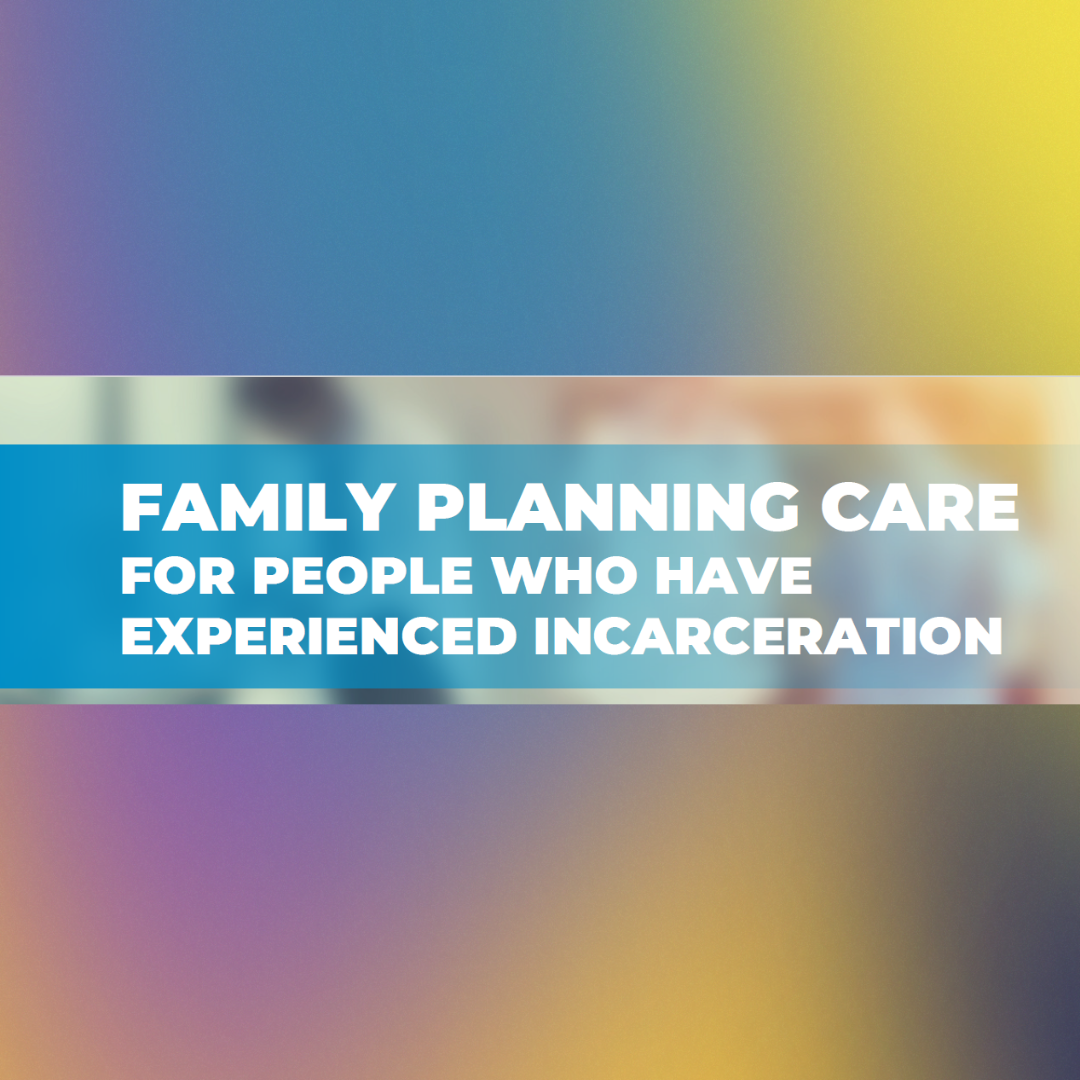Toolkits
The Child Protection Toolkit was developed to provide information for parents, guardians, lawyers, doulas, and support people to understand how a child's right to breastfeed impacts child protection cases.
The Black Doula Toolkit works to break through the narrative and act as a celebration of Black birthing and Black joy. It is written by a Black woman, for Black women and birthing people.
Toolkit for Doulas: Gender-Based Violence: This project was led by Carrie Low, an accomplished and acclaimed advocate for survivor’s rights in the criminal justice system in Nova Scotia, with support from Grisha Cowal, Clare Heggie, and Dr. Martha Paynter.
Our newest infographic: Incarceration Violates Reproductive Autonomy
Accessing Abortion in Canada: Abortion in Canada is completely decriminalized, it is healthcare. This resource provides contact information for providers across the country.
Resources by Black Experts: a PDF of resources that are culturally relevant to the experiences of Black parents.
Criminalized Women Advocacy Guide zine: Created by Students in the Women’s Studies Senior Seminar, Mount Saint Vincent University, March 2018.
Breastfeeding Guide: Breastfeeding and Criminalized Women. A factsheet created by Wellness Within
Legal Protections for Incarcerated Women: The Bangkok Rules, The Mandela Rules, Convention on the Rights of the Child, Nova Scotia Corrections Act, Canada Corrections and Conditional Release Act, Commissionaire’s Directive 800, The Canadian Constitution Act, Human Rights legislation.
For doula support to meet the needs of clients from systematically excluded communities, it must be representative and culturally safe. In recognizing that doulas in Nova Scotia are predominately white, straight and cisgender, Wellness Within has prioritized queer doula education in our training program by incorporating the Queer Doula Toolkit and coordinating dedicated training for the 2SLGBTQ+ and QTBIPOC communities.
WW Resource Guide: Where to Go for Help in HRM: A Resource Guide V 4.0. This resource guide is to help you navigate programs and services in the HRM and other regions of Nova Scotia. You can also get version 2.0 and version 3.0.
A Doula’s Guide to Abortion in Canada:
This guide provides general information on abortion in Canada for doulas and people who may support someone accessing an abortion. While not all who provide this support may call themselves “abortion doulas,” in this document the term is used to refer to a non-clinical support person who provides emotional and practical support before, during, and/or after an abortion. The specific supports provided typically depend on each individual doula, where they are located, and their own unique skills and boundaries.
Guide à l'intention des doulas sur l’avortement au Canada:
Cette ressource a été créée avec le Groupe de recherche sur l’avortement et la contraception (GRAC) dans le cadre du Projet d’accès de l’équipe de recherche sur la contraception et l’avortement (GRAC): Amélioration de l’accès à l’avortement des groupes démographiques qui ont un accès limité à des services grâce à des outils pour les professionnels de la santé et les personnes à la recherche de soins. Il a été conçu dans le but de combler les lacunes en matière d’information pour les personnes de soutien non- clinique fournissant des services aux personnes cherchant à avorter au Canada.
Family Planning Care for People Who Have Experienced Incarceration:
Canada has one of the highest rates of incarceration in the world, and there are approximately 70 institutions of incarceration designated for women across the country. As a family planning professional, it is likely you will encounter people in your practice who are incarcerated or have experienced incarceration. These patients have unique care needs, and health care professionals have specific responsibilities in caring for them. Patients may have been in federal custody (sentenced to 2 years or more), remanded (held in pretrial custody) or sentenced to provincial jail, held in immigration detention, or experienced youth incarceration (ages 12-17).
SOINS DE PLANIFICATION FAMILIALE POUR LES PERSONNES AYANT VÉCU L’INCARCÉRATION:
Le Canada possède l'un des taux d'incarcération les plus élevés au monde et il existe environ 70 établissements d'incarcération réservés aux femmes à travers le pays. En tant que professionnel de la planification familiale, il est probable que vous rencontriez dans votre cabinet des personnes incarcérées ou qui ont vécu l’incarcération. Les patientes peuvent avoir été détenues dans un établissement fédéral (condamnés à deux ans ou plus), en détention provisoire (détenues avant le procès) ou condamnés à une prison provinciale, détenues dans un centre de détention pour immigrants ou peuvent avoir vécu l'incarcération dans leur jeunesse (de l'âge de 12 à 17 ans).

